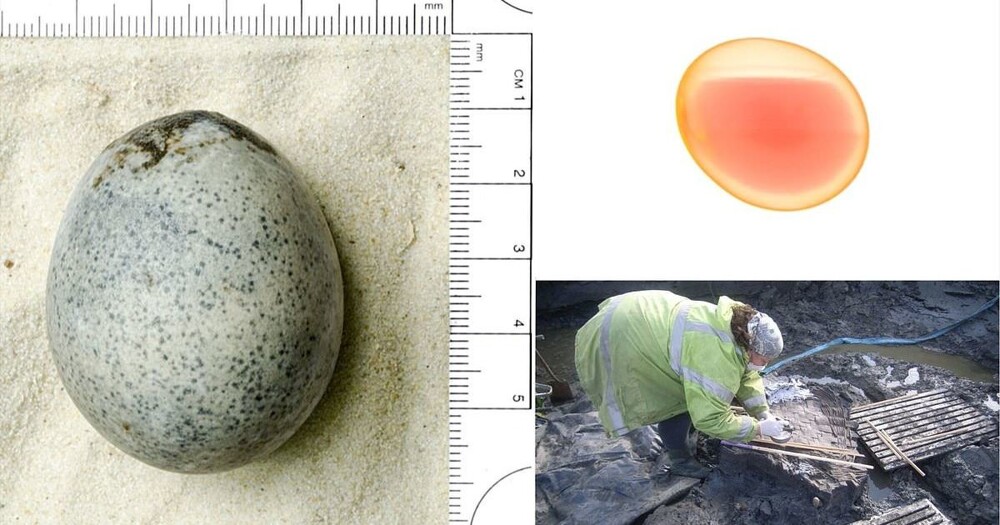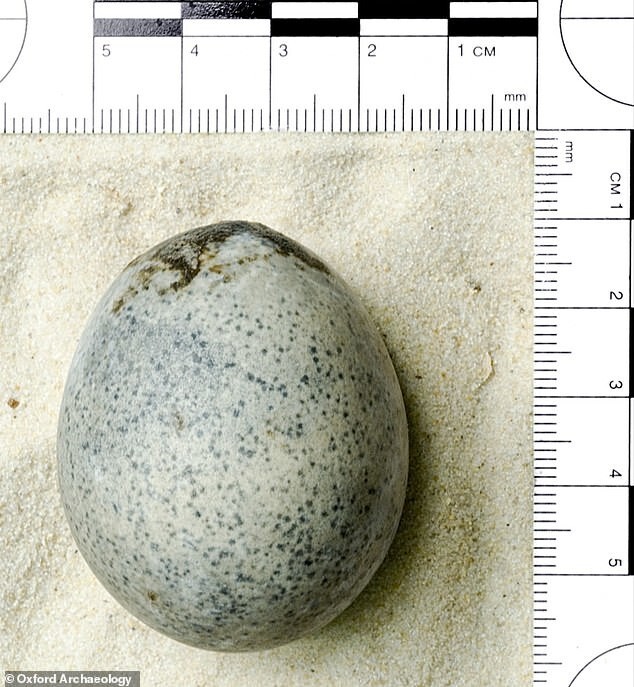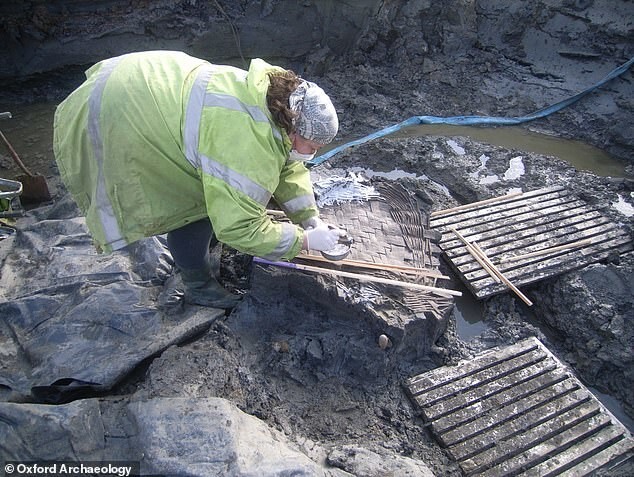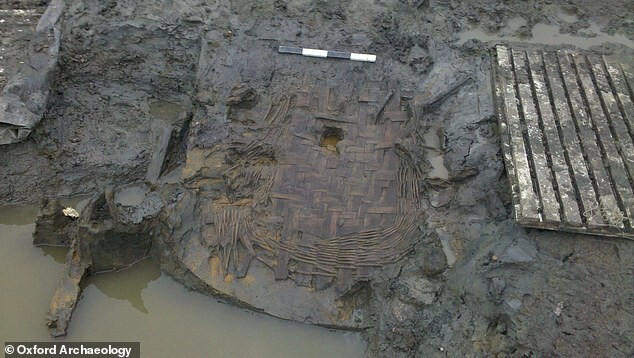A bird's egg from Roman times was found in Britain, preserving a runny yolk (4 photos + 1 video)
16 February 2024
A rare and interesting artifact has been found at excavations in Berryfields, Buckinghamshire: a speckled bird's egg dating from Roman times. It is noteworthy that the egg retained a liquid yolk and white inside - and this is after 1700 years. 
The egg, about 4 cm wide, was in a hole filled with water, which is believed to have helped it to be preserved so well.
Dana Goodburn-Brown, an archaeologist from DGB Conservation, carried out microtomography of the egg, which confirmed that it was still filled with fluid and had an air bubble.
“It was an exciting moment when we first saw the air bubble inside and then decided to turn the egg over and look again to see if the bubble would move, which it did,” Dana said.

“We decided it was best not to do anything invasive with the egg because it is so rare and its contents may be of great scientific value. Eggshells are porous, and anything applied to the surface can also contaminate the contents inside.”
Eggshells have been found in other Roman-era sites in Britain, but never a whole egg, much less one with liquid still inside.
The egg found was one of four discovered during excavations at Berryfields between 2007 and 2016 ahead of the construction of a new housing development. They were part of a collection of excavated artifacts that also included a wicker basket, pottery vessels, coins, leather shoes and animal bones.
However, three eggs broke, emitting a "strong rotten egg odor" that those present described as unforgettable and incredibly sulfurous.
According to Dana Goodburn-Brown, the egg was most likely preserved as a result of being in a hole of water. “Organic materials and liquids generally do not survive deep into the mists of time, except in special circumstances, such as if they are sealed with clay or dirt and there is no oxygen circulating through them,” she explained.

The Oxford Archaeological Survey, which led the excavation, says someone may have placed the eggs in a basket and lowered them into the Roman well "for good luck", similar to modern wishing wells. In Roman society, eggs symbolized fertility and rebirth.
The egg was recently taken to London's Natural History Museum to receive an expert opinion from Douglas Russell, senior curator of birds' eggs and nests. According to Russell, this is a very interesting and possibly unique object. There are older eggs with contents (such as mummified bird eggs found in the catacombs of sacred animals in Upper Egypt), but this is the oldest bird egg preserved unintentionally.

“It will be very interesting to see if we can use modern imaging and analysis techniques to shed light on which species laid the eggs and their potential archaeological significance,” said Douglas Russell.
The egg is now kept at the Discover Bucks Museum in Aylesbury. Researchers intend to extract its liquid contents without breaking the shell, although exactly how this will be done is not yet clear. One option is to make a thin cut in the shell to pour/blown out the contents, but this must be done very carefully.






























